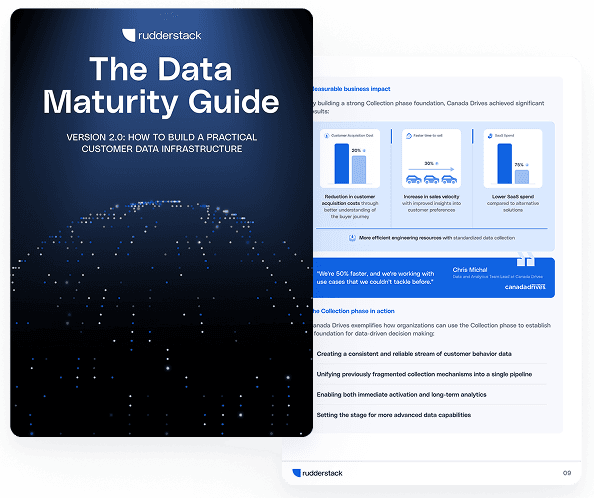RudderStack Cohorts and Activations give business teams unprecedented Customer 360 access

Published:
May 16, 2024

Understanding event data: The foundation of your customer journey
Understanding your customers isn't just about knowing who they are—it's about understanding what they do. This is where clean, accurate event data becomes a foundational part of your business strategy.

How AI data integration transforms your data stack
This article breaks down what AI data integration means, explores key benefits like faster time-to-insight and improved data quality, and walks through practical use cases and implementation strategies.

Behavioral segmentation: Examples, benefits, and tools
In this guide, you'll learn how behavioral segmentation works, explore real-world examples, and discover the tools modern teams use to power it. You'll also learn how RudderStack helps unify behavioral data across your entire stack in real time.







